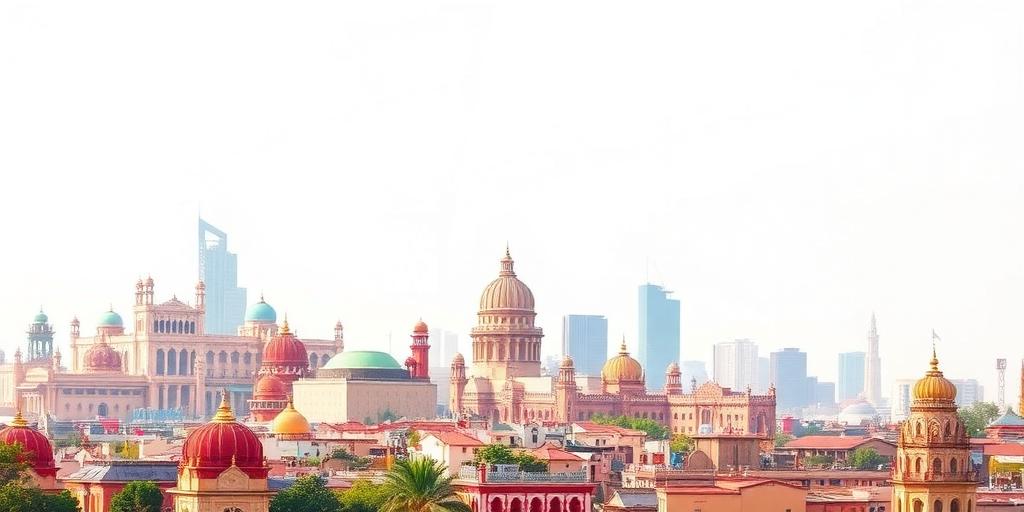Urbanization Trends: Shaping Business in India & Major World Cities
Urbanization, the increasing concentration of populations in urban areas, is a global phenomenon with profound implications for business. This article examines urbanization trends in India and major world cities, exploring the challenges and opportunities they present for businesses of all sizes.
Global Urbanization: An Overview
Globally, urbanization is accelerating. According to the United Nations, 55% of the world’s population lived in urban areas in 2018, and this is projected to increase to 68% by 2050. This shift is driven by factors such as:
- Economic Opportunities: Cities offer greater access to jobs, education, and higher incomes.
- Infrastructure Development: Urban areas typically have better infrastructure, including transportation, healthcare, and utilities.
- Social and Cultural Amenities: Cities often provide a wider range of cultural and recreational activities.
Urbanization in India: A Unique Perspective
India, with its vast population, is experiencing rapid urbanization. While still largely rural, India’s urban population is growing at a significant rate. Several key trends are shaping urbanization in India:
- Migration from Rural Areas: Driven by agricultural distress and the lure of urban opportunities, large numbers of people are migrating from rural areas to cities.
- Growth of Tier II and Tier III Cities: While major metropolitan areas like Mumbai and Delhi continue to grow, smaller cities are also experiencing rapid expansion.
- Infrastructure Challenges: Rapid urbanization is straining India’s infrastructure, leading to challenges such as traffic congestion, inadequate housing, and water scarcity.
Impact on Business in India
Urbanization in India presents both opportunities and challenges for businesses:
- Increased Consumer Base: A growing urban population translates to a larger consumer market, particularly for goods and services catering to urban lifestyles.
- Demand for Infrastructure: The need for improved infrastructure creates opportunities in construction, engineering, and related industries.
- Logistical Complexities: Businesses face challenges in managing supply chains and logistics in congested urban environments.
- Rising Real Estate Costs: The cost of commercial and residential real estate in urban areas is increasing, impacting business operating costs.
Urbanization in Major World Cities
Major world cities like New York, London, Tokyo, and Shanghai continue to be economic powerhouses and centers of innovation. However, they also face unique challenges related to urbanization:
- Sustainability Concerns: Large cities have a significant environmental footprint, leading to a focus on sustainable development initiatives.
- Affordability Issues: The high cost of living in major cities is a growing concern, impacting the ability to attract and retain talent.
- Technological Integration: Cities are increasingly leveraging technology to improve efficiency and quality of life, creating opportunities for tech companies.
Strategies for Businesses
To succeed in urban markets, businesses need to adopt strategies that address the unique characteristics of these environments:
- Adapt to Local Needs: Understand the specific needs and preferences of urban consumers in different regions.
- Invest in Technology: Leverage technology to improve efficiency, enhance customer service, and optimize operations.
- Focus on Sustainability: Adopt sustainable business practices to reduce environmental impact and appeal to environmentally conscious consumers.
- Address Affordability: Offer products and services that are accessible to a wide range of income levels.
The Future of Urban Business
Urbanization will continue to shape the business landscape in India and around the world. Businesses that can adapt to the challenges and capitalize on the opportunities presented by urbanization will be best positioned for long-term success. This requires a focus on innovation, sustainability, and a deep understanding of the evolving needs of urban populations.
Conclusion
Urbanization trends are reshaping the global business environment, especially in rapidly developing nations like India. By understanding the unique dynamics of urbanization in different regions and adopting appropriate strategies, businesses can thrive in this evolving landscape. Focus on sustainable practices, technological integration, and addressing the specific needs of urban populations will be crucial for long-term success.
